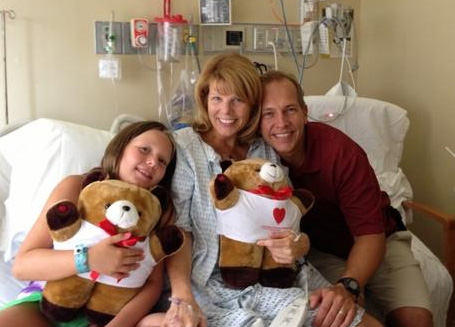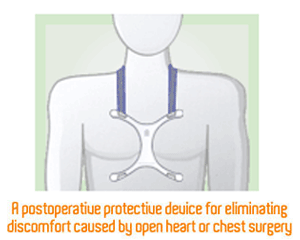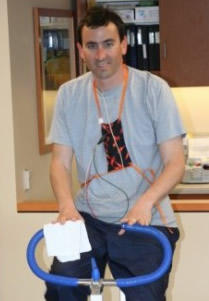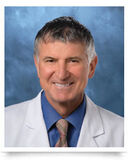6 Tips To Prepare You For Heart Surgery Recovery
By Adam Pick on September 3, 2013
After heart surgery, you’ll likely go home with a list of dos and don’ts from your physician. Preparing for surgery beforehand will also help the recovery process go more smoothly and comfortably.

More than 85,000 aortic valve replacements are performed on average in the United States each year, according to the University of Maryland Medical Center. It’s a life changer, and prepping for the recovery process minimizes risks of short-term and long-term complications.
1. Incision Care
Keeping the incision infection-free is a top priority during the first weeks of recovery. Before surgery, ask a loved one to meet with your doctor to discuss how to care for the incision so you don’t have to do it yourself. Only soap and water should be used to cleanse the incision site. After washing, it should be gently patted dry to remove excess moisture. Johns Hopkins Medical Center notes the most common signs of infection as being redness, warmth, reopening of the incision, oozing pus, or fever.

Many patients in our community use the Incision Shield to minimize discomfort and protect the incision after surgery.
2. Rest
The Society of Thoracic Surgeons explains that patients’ primary complaints after heart valve surgery is difficulty sleeping. Establish a bedtime routine before surgery to train your body to relax and prepare for sleep. Listen to calming music, read a book, or drink non-caffeinated tea 30 minutes before bed to unwind. The Mayo Clinic also mentions how a comfortable mattress contributes to better sleep. Latex (solid foam) or memory foam mattresses from Macy’s are recommended to alleviate pain. Before surgery, test out your new mattress in the store. Keep in mind that you’ll have to sleep on your back because of the incision.
In addition, some patients choose to use recliners after cardiac surgery to aid in the recovery.
3. Physical Activity
Activity during recovery is recommended, but pace yourself. Before surgery, take care of any household chores, such as reorganization or major cleaning that you will be unable to perform afterward. Start slowly after surgery. Walk around the house for a minute or two at the time. As physical activity increases, ask a loved one to move around with you to help ensure you do not fall or injure yourself. Consult your doctor before returning to more intensive activity, such as jogging, swimming, or lifting weights.
During my recovery, I would walk all over my neighborhood. The longer I walked — with friends and family — the better I felt.
4. Transportation
Most doctors recommend that patients avoid driving for 3 to 8 weeks after surgery. Before you head to the hospital, set up a car pool plan with friends or loved ones. Determine who will drive you to scheduled post-op appointments or assist with grocery shopping or making trips to the pharmacy. If you don’t have family who can help during your recovery, ask senior centers, your church, or a social worker at the hospital about transportation services in your area.
5. Emotional Changes
Cleveland Clinic reports that cardiac depression after heart surgery is a common side-effect that typically resolves itself within several months. Ask a loved one to be aware of signs of depression — lower mood, apathy, increased sleep, feelings of hopelessness, loss of interest in everyday activities, or suicidal thoughts. These feelings are normal effects of heart surgery, but ask your loved one to contact your doctor if symptoms significantly persist for more than three weeks post-surgery.
Here’s a video I filmed with Dr. Marc Gillinov about cardiac depression after heart surgery.
6. Plan To Attend A Cardiac Rehabilitation Program
One of my key tips for patients preparing for heart valve surgery is to sign-up for a cardiac rehabilitation program BEFORE the actual surgery. In my opinion, cardiac rehab is critical for patients.

Me At Cardiac Rehab (6 weeks after surgery)
Research suggests that cardiac rehab provides patients physical, emotional and social benefits following heart surgery. Unfortunately, cardiac rehab is often under-utilized by patients and under-referred by cardiologists and surgeons. You can learn more in this interview.
I hope this helped you learn more about the recovery from heart valve surgery. To leave a comment, add your recovery tips, and/or see other patient comments, please scroll below!
Keep on tickin!
Adam
|
Debbie says on September 5th, 2013 at 6:43 am |
|
I am having valve surgery on the 26 of September 2013 I have aortic stenosis. I have 4 children and all 4 are flying in for it along with my sister and my husband. I really wish no one was coming with everyone here is scares me even more but I would never tell them that. I would love to chat one on one with someone to could make me feel at ease |
 |
|
pam says on September 10th, 2013 at 12:48 pm |
|
Debbie, you are very lucky to have a family who loves and supports you. You have probably taken care of them in the past. Now let them take care of you. As far as post operative stuff. I was lucky to drive 3 weeks after surgery. If you are a neat freak, then hire someone to clean your house. Keeping dust free is important. I stayed with friends for 3 weeks while my house was being remodeled. If you have a pet, hire someone to walk them/scoop the litter. My problem was keeping the cats off my incision. So I slept with my arms crossed over my chest. Luckily, I had a wonderful neighbor who wheeled out the garbage! Ask for help. People want to help you. You can always take them out to dinner/give them token gifts later. |
 |
|
Linda S. says on September 10th, 2013 at 2:07 pm |
|
Debbie, |
 |
|
leslie bartlett says on September 10th, 2013 at 4:32 pm |
|
While I had my surgery 19 people were down in the waiting area having a party. They didn’t even save me any cake! I would say your surgical nurse is a crucial ally. I have rather general anxiety disorder, and once I communicated that, she was absolutely sure I was sedated almost the moment I arrived at the hospital. The ICU and PICU nurses were angels. nearly 3 years later I still occasionally take flowers to the units to remind them how incredible they were for me. |
 |
|
Magdalene. Davey says on August 11th, 2014 at 9:28 pm |
|
Hi. Dr my brotherinlaw is in. A hospital as I’m writing to he is offered a mitral valve or a tissue valve we don’t know what’s the best option I believe the doctor. Made some key points about the options off being on blood thinner for life with the mitral as. Oppose to taking the blood thinner for. Three months with the tissue. Please help with any advise you might help. |
 |
|
Donna Elkins says on July 18th, 2017 at 1:16 am |
|
I had my surgery September 29,2016 they replaced my aurta valve with a tavr valve my surgery went better than my doctor even thought it would my medical team from surgeons to nurces even housekeeping and food servers was the best they made my stay easy and pleasant I was lucky I have a 4 inch scar an my left of my chest healing was good with no complications. I had a wonderful support systems with my husband,family members and friends. I was scared at first I am very glad of my doctors and surgeons and would recommend them to anyone needing surgery. |
 |













